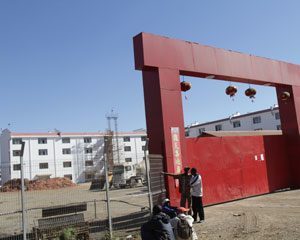
THE water table in Harare is fast dwindling and the city’s boreholes may run dry if the uncontrolled drilling of boreholes continues, a recent report by a local geologist warns.
NQABA MATSHAZI
The report by Tim Broderick, a renowned geologist, notes that most of the rock material under Harare was notoriously poor for the development of underground water and the city should come up with plans to create artificial wetlands, while preserving the existing ones.
“The chaotic drilling of private boreholes in response to a failure in the regular supply of municipal water, notably across the northern suburbs of Harare, peaked through the years 2007 to 2009,” the report reads.
“There would seem to be no doubt that the increased abstraction of groundwater through this dense array of borehole use is aggravating drawdown of the water table.”
Following years of failure to provide tap water, the City of Harare, like many others, advised residents to start drilling boreholes and digging shallow wells.
Suburbs affected by serious water shortages include Mabvuku, Tafara and newer ones such as Mainway Meadows. In the more affluent neighbourhoods, residents also drilled boreholes to augment Harare’s water supplies, which often dried out.
When running water is available, it usually comes out dirty and smelling of human waste, making it unfit for drinking purposes, even for other domestic chores.
- Chamisa under fire over US$120K donation
- Mavhunga puts DeMbare into Chibuku quarterfinals
- Pension funds bet on Cabora Bassa oilfields
- Councils defy govt fire tender directive
Keep Reading
Broderick says much of the southern portion of Harare, which includes Amby, Msasa, Waterfalls, Hatfield, Highfield and the western suburbs was situated on granite rocks, which made it difficult for the water to be accessed through boreholes, but is easily available through hand-dug wells.
These areas are, however, in the vicinity of wetlands and the digging of boreholes affects rain run-off into Harare’s main water sources and this could affect the availability of water when there is a poor rainfall season.
Broderick, in the report published by Kubatana, paints a gloomy picture of the abstraction of groundwater, suggesting that the Zimbabwe National Water Authority (Zinwa) should tax users of boreholes in an effort to preserve the resource.
“If borehole water users cannot recognise the excesses of their use of this delicately balanced resource through, say the over irrigation of gardens and road verges, then it is up to the sub-catchment councils to earn their keep, provided for in the payment of quarterly ‘monitoring fees’ on registered boreholes, by enforcing the sound management principles provided for by the water law, regulations and standards that exist,” the report reads.











